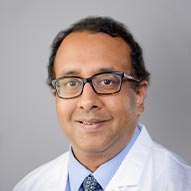Dallas
214-456-8000
Fax: 214-456-8005
Plano
469-497-2505
F: 469-497-2511
Park Cities
469-488-7000
Fax: 469-488-7001
Prosper
469-303-5000
Fax: 214-867-9511
At Children's Health℠, our team of experts who treat eosinophilic gastrointestinal disorders (EGIDs) includes pediatric gastroenterologists, allergists, psychologists and nutritionists. These specialists work together to offer your child early diagnosis and treatment. That means we can ensure that your child has the best symptom relief, growth, development and overall health possible.
214-456-8000
Fax: 214-456-8005
469-497-2505
F: 469-497-2511
469-488-7000
Fax: 469-488-7001
469-303-5000
Fax: 214-867-9511
Eosinophilic gastrointestinal disorders (EGIDs) are rare health conditions where white blood cells, called eosinophils, build up in the digestive system. Eosinophils play an important role in the body's response to allergic reactions, asthma and parasitic infections. But too many eosinophils can cause swelling, inflammation and discomfort.
Eosinophil disorders are rare, affecting around 1 in 1,500 children. However, they can affect how your child eats, grows and develops. EGIDs are often seen in children with other allergic disorders, such as asthma, eczema and food allergies.
The location of your child’s inflammation determines which kind of EGID they have. They can happen in the esophagus, large intestine or stomach and small intestine. There are three types of gastrointestinal eosinophilic disorders:
Eosinophilic colitis (EC) is swelling caused by too many eosinophils gathering in the large intestine. EC can cause problems with your child’s stool, such as diarrhea.
Eosinophilic esophagitis (EoE) is inflammation caused by high amounts of eosinophils in the esophagus. If left untreated, it can lead to growth failure as it causes difficulty in swallowing foods and narrowing — and even scarring — of the esophagus over time.
Eosinophilic gastroenteritis (EGE) is inflammation caused by an abundance of eosinophils collecting in the stomach or small intestine. The swelling can stop the small intestine from appropriately digesting and absorbing nutrition, which can lead to problems with growth and development.
Eosinophilic gastritis (EG) affects only the stomach and can cause long-term stomach pain, vomiting, and feeding problems, which can affect your child’s growth and development.
There are several tests to diagnose eosinophilic disorders. A doctor will review your child's medical history and conduct a physical exam. They might also perform one or more of the following tests:
During a colonoscopy, EGD, and flexible sigmoidoscopy, your child’s care team will also do a biopsy, which means they will collect a small portion of tissue to look for eosinophils under a microscope. Doctors may order these tests for your child throughout treatment, as well, to make sure it is working.
Not every child needs all of these tests. Your child’s physician will tell you exactly what the next steps are.
Eosinophilic disorders occur when an allergic disorder, such as asthma or hay fever, triggers the immune system to produce an excess of a certain type of white blood cells called eosinophils. Children with food-related allergies often develop these disorders. EGIDs also sometimes run-in families.
Your child’s care team will work to remove triggers from your child’s diet. They will also offer treatments to help eliminate the swelling in your child’s digestive system.
Treatments to remove triggers include three main types of nutrition plans:
Treatments to reduce or eliminate swelling in your child’s digestive system might include:
Our expert team is here to help pinpoint your child’s food allergies and manage or stop inflammation before it causes serious problems. Schedule an appointment with one of our providers today.






EGIDs affect both males and females but are slightly more common among boys. They are most prevalent in older children and adults. Children with a history of allergies, eczema, and seasonal asthma are more likely to develop these disorders.
There is no cure for an EGID, but they are manageable. The sooner we can diagnose and treat your child, the sooner we can help them absorb nutrients to help them grow and develop. We’re here to help get your child’s nutrition on track for life.